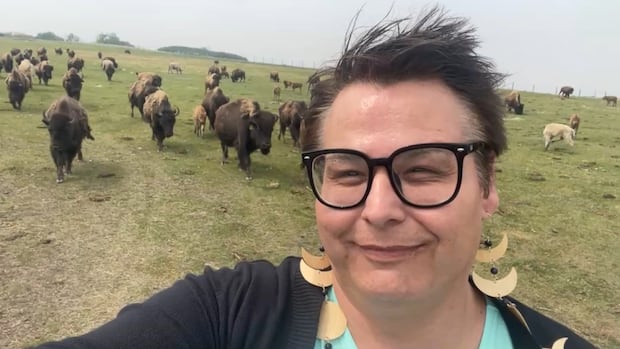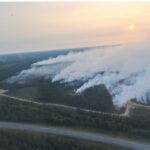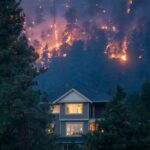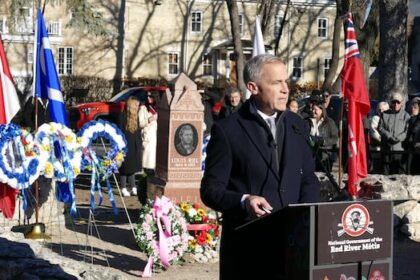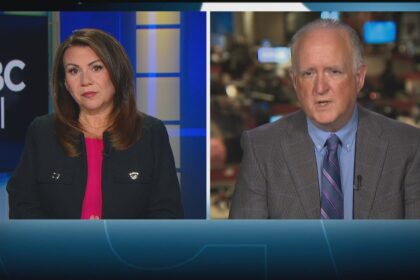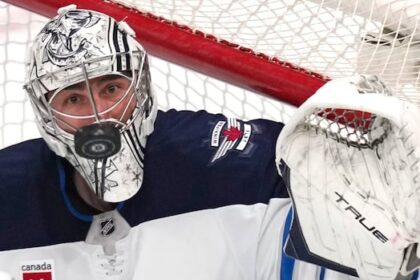Manitoba·First PersonAdvocate Alaya McIvor says as she documents cases of missing and murdered Indigenous men and boys, “I’m struck by the anger, resentment, and frustration that comes with knowing that their cases have not received the attention they deserve.”‘Their cases have not received the attention that they deserve,’ says Alaya McIvor, who created MMIMB databaseAlaya McIvor · for CBC News · Posted: Aug 10, 2025 7:00 AM EDT | Last Updated: 3 hours agoAlaya McIvor hopes her advocacy for missing and murdered Indigenous men and boys will effect change. ‘I know this is just the beginning,’ she writes. (Submitted by Alaya McIvor)This First Person article is the experience of Alaya McIvor, a community matriarch and advocate for missing and murdered Indigenous women, girls and two-spirit people, and for missing and murdered Indigenous men and boys. For more information about CBC’s First Person stories, please see this FAQ. You can read more First Person articles here.As someone who has been at the forefront of the missing and murdered Indigenous women, girls and two-spirit people movement, often helping families mobilize for vigils and other events, I knew that more needed to be done to address the issue of MMIMB — missing and murdered Indigenous men and boys.So, as a family member directly impacted by both MMIWG2S+ and MMIMB, two years ago, I took it upon myself to start documenting the names of MMIMB. However, due to the emotional stress associated with this work, I would periodically put the list away.It wasn’t until recently, after losing my aunt Mary, that I made a personal commitment to her to rededicate myself to researching online and through families the documentation and collection of data I had started collecting when I first began putting this list together.Aunt Mary, my mother’s sister, was 77 years old and the matriarch of our family before she passed away on April 23.Alaya McIvor’s uncle Wayne McIvor was murdered in 1984. ‘I never had the chance to meet him, but my family shared stories of his kindness and dedication to his family,’ she writes. (Submitted by Alaya McIvor)My commitment to her was inspired by her brother, my uncle Wayne McIvor, who was killed in my home community of Sandy Bay First Nation on Feb. 4, 1984.I never had the chance to meet him, but my family shared stories of his kindness and dedication to his family.Jordan McIvor was 19 years old when he was killed in Winnipeg in 2010. (Submitted by Alaya McIvor)I also wanted to create a platform for my nephews, Jordan McIvor and Christopher “Teddy” Beaulieu-McIvor — my aunt Mary’s grandson and great-grandson, respectively. Jordan Dallas Shane McIvor was 19 years old when he was killed in Winnipeg in 2010.Christopher Dwight McIvor-Beaulieu was just 17 when he was killed in Winnipeg in 2018.Christopher Dwight McIvor-Beaulieu, also known as ‘Teddy,’ was just 17 when he was killed in Winnipeg in 2018. (Submitted by Alaya McIvor)Documenting the names of MMIMB is not a simple task; it requires a lot of work and emotional investment. And as I do so, I feel the presence of these men and boys, and I’m struck by the anger, resentment and frustration that comes with knowing that their cases have not received the attention they deserve.We have tragically lost three family members to homicide over the past 41 years, without access to social programs, resources, or healing for families of MMIMB.A growing listAnd we’re not the only ones. Far from it.Prior to my aunt’s passing, I had documented around 30 names. However, after recommitting myself to this work, the list grew rapidly: 75, 100, 120, 180 — and eventually 225 names. I was not surprised by the growing number, given my experience working on an MMIWG2S+ list. But what’s alarming is that none of these men or their families have had access to services tailored to their needs, or even a list of their names documented like the one I put together.I was hesitant to post the list — all 225 names — on social media. But I knew it would allow families to come forward and add their loved ones’ names. And it did. Within seconds of posting it, I had the first family come forward. Within 36 hours, 31 families had reached out. The list has now grown from 225 to 256 names. Alaya McIvor says her aunt Mary ‘would be overjoyed to see an actual list’ created to document cases of missing and murdered Indigenous men and boys. (Submitted by Alaya McIvor)I’m certain that if my aunt Mary were still with us today, she would be overjoyed to see an actual list of Manitoba’s missing and murdered Indigenous men and boys’ names and other data I’ve gathered so far.I hope that this list will help us advocate for these critical essential services, including intervention and prevention programs for men and boys across our province. This list is a first of its kind for Manitoba, and I’m committed to continuing this work as we continue moving forward. I know this is just the beginning, and I know the list will continue to grow. ABOUT THE AUTHORAlaya McIvor is a community matriarch, activist, family member and advocate for missing and murdered Indigenous women, girls and two-spirit people, and for missing and murdered Indigenous men and boys.
Wednesday, 4 Mar 2026
Canada – The Illusion
Search
Have an existing account?
Sign In
© 2022 Foxiz News Network. Ruby Design Company. All Rights Reserved.
You May also Like
- More News:
- history
- Standing Bear Network
- John Gonzalez
- ᐊᔭᐦᑊ ayahp — It happened
- Creation
- Beneath the Water
- Olympic gold medal
- Jim Thorpe
- type O blood
- the bringer of life
- Raven
- Wás’agi
- NoiseCat
- 'Sugarcane'
- The rivers still sing
- ᑲᓂᐸᐏᐟ ᒪᐢᑿ
- ᐅᑳᐤ okâw — We remember
- ᐊᓂᓈᐯᐃᐧᐣ aninâpêwin — Truth
- This is what it means to be human.
- Nokoma


